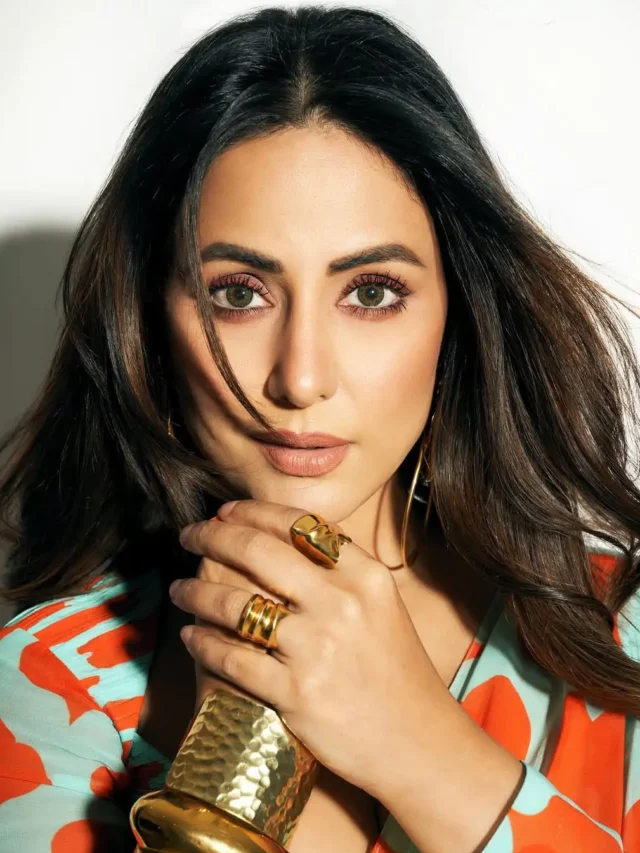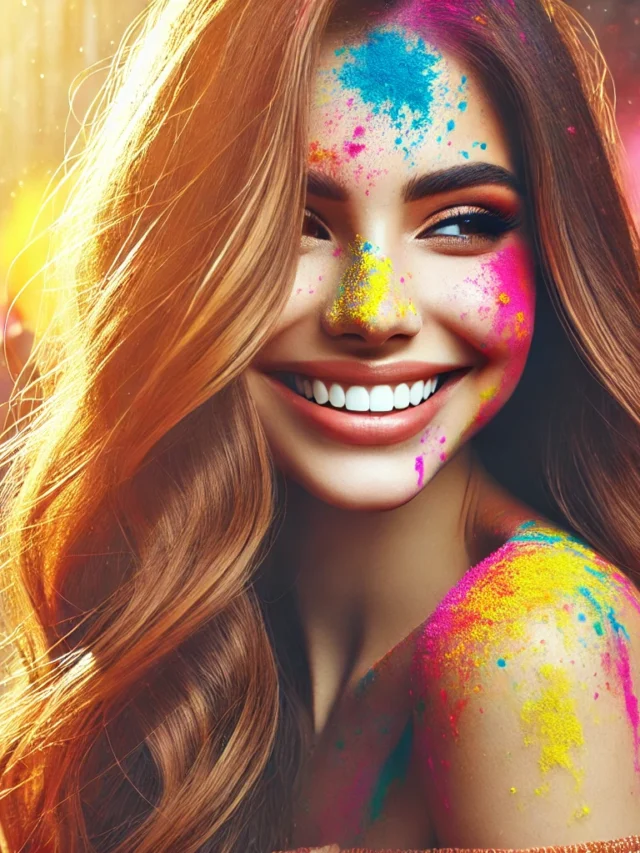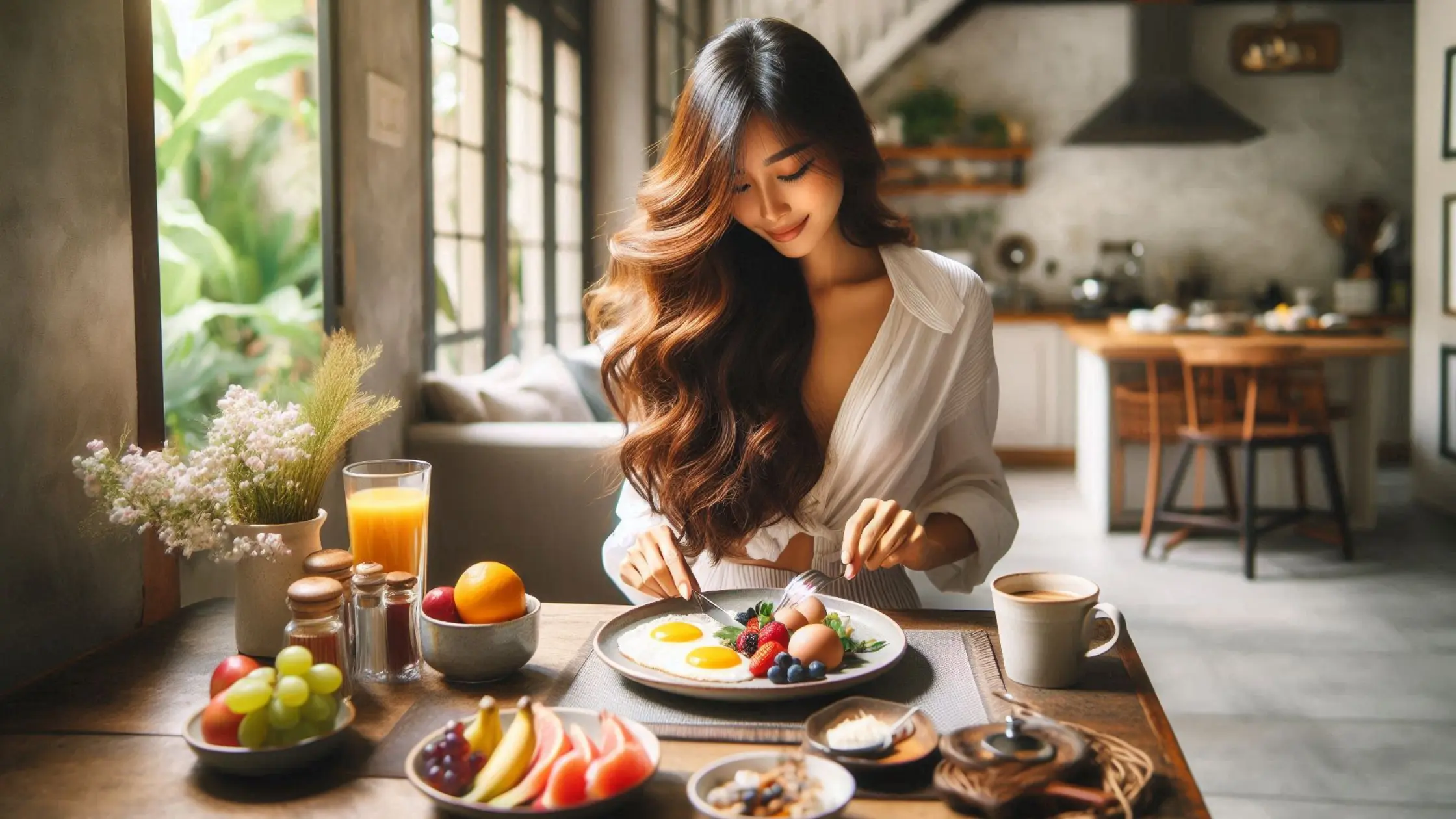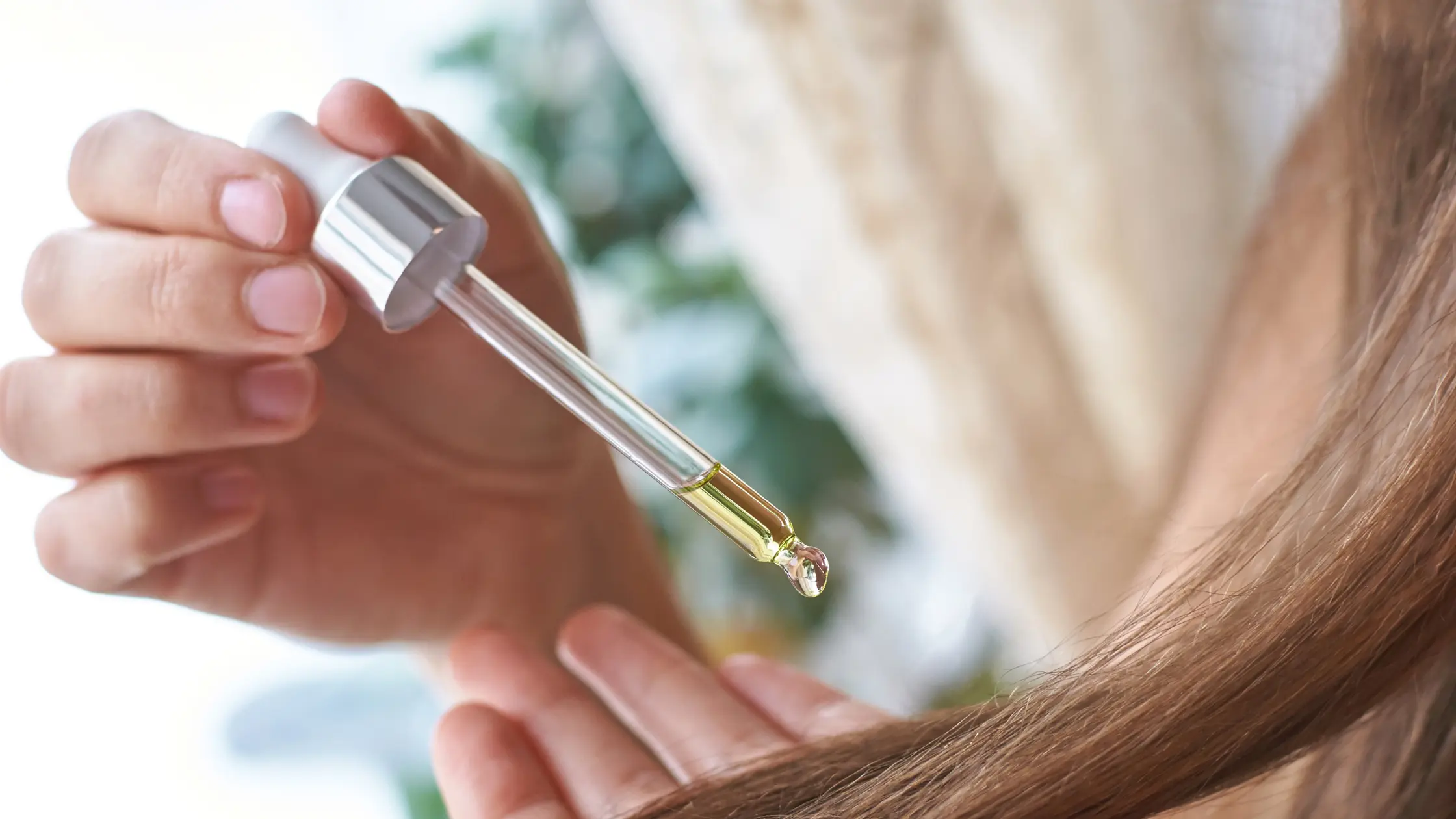Ever run your fingers through your hair and felt like you were reenacting a shampoo commercial… only for your hand to come out looking like a squirrel’s tail? Welcome to the not-so-glamorous club of hair fall sufferers. But before you start scrolling through TikTok for DIY onion juice cures or cry over clogged shower drains, let’s talk about something refreshingly simple: your diet.
Yes, what you eat (or forget to eat) might just be the undercover villain behind your disappearing strands.
Hair Fall And Nutrition: The Glamorous Science
Your hair isn’t just dead keratin cells pretending to be fabulous, it’s actually a demanding diva that thrives on nutrition. Hair follicles are among the fastest-growing cells in the body, but they’re not essential for survival.
Translation: when your body’s low on nutrients, your hair is the first to get ghosted.
Common causes of hair fall like stress, hormonal imbalance, seasonal shedding and genetics get all the attention, but your diet is the one holding the scissors behind your back.
So, let’s unmask the ultimate Hair Fall Control Diet, a mix of superfoods, science, and a sprinkle of kitchen sass.
The Hair-Friendly Nutrients You Need In Your Hair Fall Control Diet (& What Happens When You Ghost Them)
Protein
Your hair is made of a protein called keratin. No protein intake leads to weak strands resulting in hair fall and excessive shedding. Or as I call it, “snowing from the scalp.”
What to eat to manage your protein intake?
- Eggs (nature’s multivitamin)
- Greek yogurt
- Lentils and chickpeas
- Chicken, turkey, fish (for the carnivores)
- Tofu and tempeh (for the plant-based glow-getters)
Spread your protein throughout the day. Your hair isn’t going to forgive you for dumping 40 grams on it at dinner and starving it all morning.
Iron
Iron helps red blood cells carry oxygen to your hair follicles. Think of it as nutrition delivering system for your scalp cells. Hair thinning, fatigue, weaker strands that fall often are all signs of iron deficiency.
To get iron from your meals, incorporate
- Spinach (Pro tip: pair with lemon juice for better absorption)
- Beetroot
- Pumpkin seeds
- Raisins and dates
- Jaggery
Iron deficiency is one of the most common causes of hair fall in women, especially during menstruation and post-pregnancy. So yes, being a goddess comes with baggage.
Vitamin D
It stimulates hair follicles and may create new ones (basically the fairy godmother of growth). Thinning hair, patchy hair loss, chronic moodiness are signs to know you are dealing with vitamin D deficiency and your body is screaming for help.
To get vitamin D, make
- Fatty fish like salmon, mackerel
- Mushrooms (the only veg source that isn’t boring)
- Fortified milk, orange juice
- Egg yolks
an integral part of your diet.
Also, Sunshine. Your best friend, unless you’re binge-watching true crime indoors all day.
Biotin
Biotin helps convert food into energy and strengthens keratin. Hair breakage, dry scalp, brittle nails are all signs to watch out.
To get biotin from your hair fall control diet, eat
- Almonds
- Sweet potatoes
- Eggs (yes, again)
- Avocados
- Cauliflower
Save your money on trendy pills and eat your nutrients instead. Your hair and wallet will thank you.
Omega-3 Fatty Acids
It keeps the scalp hydrated and nourished, reduces inflammation, and may reduce hair loss. I can vouch how much it helped me achieve healthier hair that grows faster.
To get Omega-3, include
- Chia seeds
- Walnuts
- Flaxseeds
- Salmon, sardines, and tuna (if you’re feeling fancy)
in your daily diet.
Omega-3s are also great for glowing skin. Two birds, one stylish stone.
Zinc
Zinc supports the oil glands around the hair follicles and helps with tissue growth and repair. It is a natural DHT blocker. Dandruff, slow hair regrowth, and hair fall that doesn’t quit are signs of zinc deficiency.
Eat a balanced diet that includes
- Pumpkin seeds
- Cashews
- Oysters (for the adventurous palette)
- Chickpeas
to manage your zinc deficiency.
Remember: Too much zinc can backfire. Moderation is sexy.
Vitamin E
Vitamin E protects hair follicles from oxidative stress (yes, even your hair feels stressed these days). To get vitamin E, make sure your diet includes
- Sunflower seeds
- Almonds
- Spinach
- Avocados (yes, millennials, you’re winning)
Pro tip: Blend sunflower seeds into smoothies or sprinkle over yogurt bowls for that perfect hair.
A Day on the Hair Fall Control Diet: What Your Plate Should Look Like
Let’s make it delicious and doable. No celery sticks pretending to be meals here.
Morning (8–9 AM)
- 1 boiled egg + multigrain toast + half avocado
- A smoothie with spinach, banana, chia seeds, and almond milk
- 1 Brazil nut (for selenium, a hair booster!)
Mid-Morning Snack (11 AM)
- Handful of pumpkin seeds
- Herbal tea or coconut water
Lunch (1 PM)
- Grilled tofu or fish bowl with brown rice, beetroot, cucumber, bell peppers, and sesame seeds
- Squeeze lemon for extra iron absorption
Evening Snack (4 PM)
- Roasted chickpeas or trail mix (walnuts, almonds, raisins)
- Green tea
Dinner (7 PM)
- Lentil soup with spinach and sweet potato
- Whole wheat roti or quinoa
- A glass of warm turmeric milk (your grandma was right)
- Optional Hair-Lover’s Dessert: Dark chocolate square (for zinc and happiness)
What To Avoid If You Love Your Hair?
Sometimes the best love is tough love. So here’s what needs to leave your plate if you’re serious about hair revival:
- Crash diets: Your hair doesn’t care about your beach body.
- Refined sugar: Inflammation city.
- Excess vitamin A: Yes, too much of even a good thing can cause hair loss.
- Highly processed junk: If it came from a bag, your hair probably hates it.
The Hair-Gut Connection: Why Your Microbiome Might Be Messing with Your Mane
A healthy gut means better absorption of hair-healthy nutrients that your body needs.
So don’t forget:
- Include fermented foods like yogurt, kefir, kimchi
- Avoid antibiotics unless necessary
- Manage stress
Supplements: Shortcut Or Scam?
If you eat well consistently, you likely don’t need supplements. But if you’re dealing with:
- Diagnosed deficiencies
- PCOS or thyroid conditions
- Postpartum hair loss
- Chronic stress or restrictive diets
Then a trichologist or nutritionist-approved supplement plan may be necessary.
Just don’t self-medicate with a cocktail of random pills you found on a Reddit thread.
Over To You
Your hair is part of you. And just like your skin, nails, and everything fabulous about you, it thrives when treated right from within. Instead of obsessing over serums and miracle oils (which are great too, don’t get us wrong), start with your plate.
Because behind every great hair flip is a balanced, nutrient-rich, anti-shedding, follicle-nourishing diet.
Bon appétit and may the only thing falling this season be the leaves, not your hair.








